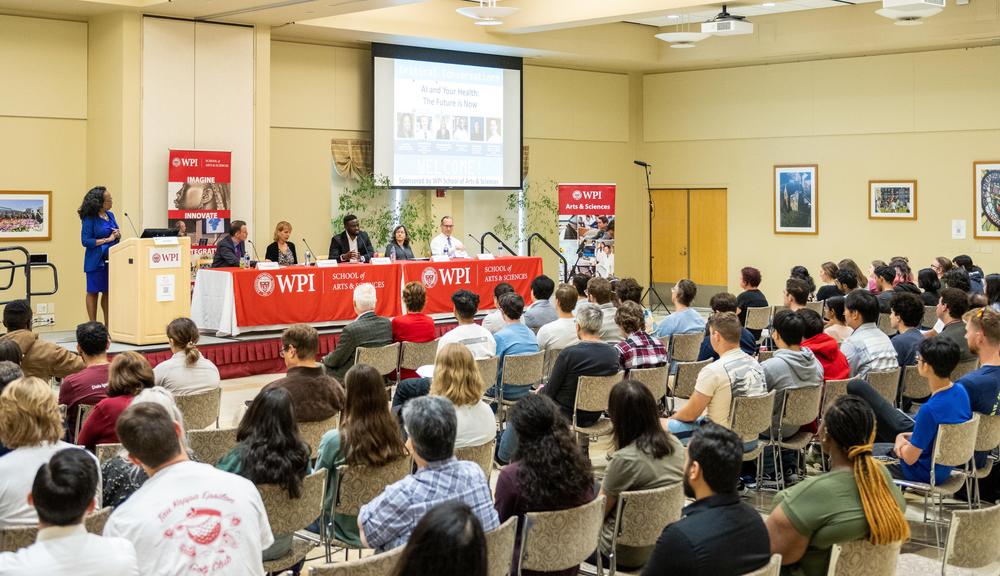With major ongoing projects aimed at improving the use of electronic medical records and other health information technology (HIT) tools at civilian medical centers and the U.S. Veterans Administration, researchers at Worcester Polytechnic Institute (WPI) have come together to form the Center for eHealth Innovation and Process Transformation (CeHIPT). The new center integrates WPI’s research in technology, engineering, management and process development to help health care organizations use new HIT systems and related technologies to realize improvements in patient care and institutional efficiency.
"From our ongoing work in health care and other complex organizations, we saw a great need to bridge the gap between the technology and the real-world working processes of organizations that use the technology," said Diane Strong, PhD., professor of management at WPI and director of the new center. "It will take breaking down traditional barriers and bringing together experts from many disciplines to transform health care and to achieve the benefits we believe are possible using new information technology. That’s what makes this new center unique."
The center was organized by Strong and her colleagues Sharon Johnson, PhD., associate professor of industrial engineering, Isa Bar-On, PhD., professor of mechanical engineering, and Bengisu Tulu, PhD., assistant professor of management. The group serves as the executive council for CeHIPT, with the directorship rotating among them. This interdisciplinary team has years of experience studying the impact of information technology systems in large, complex organizations such as global manufacturing companies, as well as the associated management practices and work-flow processes that either support, or hinder, efforts to improve operations and outcomes. The team also has expertise in designing process for lean operations and the emerging field of telemedicine.
CeHIPT researchers recently joined with colleagues at MIT, Northeastern University, and the VA New England Healthcare System to form the New England Healthcare Engineering Partnership. This consortium was awarded funding by the VA to apply engineering principles to improve patient care at the VA’s hospitals and clinics in New England. Through the consortium, WPI faculty and students will be analyzing the VA’s extensive clinical and operational data and processes to design and implement systems changes that improve several functional areas, including bedside care, colorectal cancer care, and the administrative processes for compensating disabled veterans.
Also, CeHIPT faculty are in the midst of a three-year international study, funded by the National Science Foundation, to examine and analyze how implementing HIT systems in the primary care setting affects medical providers, their patients, and the operations of the health care delivery system. The researchers are observing the planning for HIT implementations and the roll-out of the systems in various locations, and how management and staff adapt to the new systems and tools. The goal of the study is to develop new insights and best practices for the use of such systems to help guide future HIT implementations at other medical facilities.
In the United States, the study is focusing on two organizations in Massachusetts: Fallon Clinic, a large group medical practice, and UMass Memorial Heath Care, an integrated medical system with 700 primary care physicians, several community hospitals, and an academic medical center serving Central New England. In Canada, which has universal coverage and a single-payer funding system, the study will include primary care offices of the Vancouver Coastal Health District. In Israel, which has a hybrid health care delivery model with four health funds that provide medical care to the entire population, the study will examine primary care practices in two of the health funds.
On October 8, some 45 health care and technology professionals, including practicing physicians, hospital executives, software engineers, management consultants and researchers across several disciplines, attended the center’s inaugural symposium at WPI. They heard plenary presentations from Peter Levin, PhD., senior advisor to the secretary and chief technology officer for U.S. Department of Veterans Affairs; Jody Hoffer Gittell, PhD., associate professor of management and MBA Program Director at Brandeis University’s Heller School for Social Policy and Management and author of the book High Performance Health Care (McGraw-Hill, 2009); and Timothy Ferris, MD, MPH, medical director for the Massachusetts General Hospital Physicians Organization.
"We were very pleased with the level of discussion at the symposium," Strong said. “The feedback was positive, and people are engaged, looking forward to the center’s next event and for opportunities for future collaborations."




